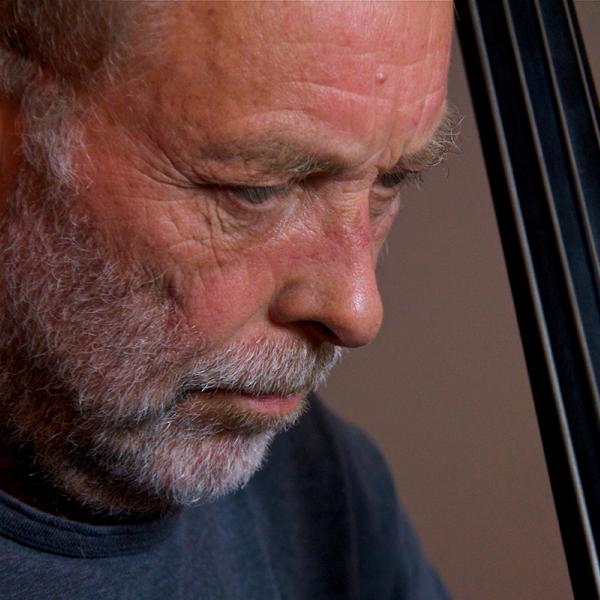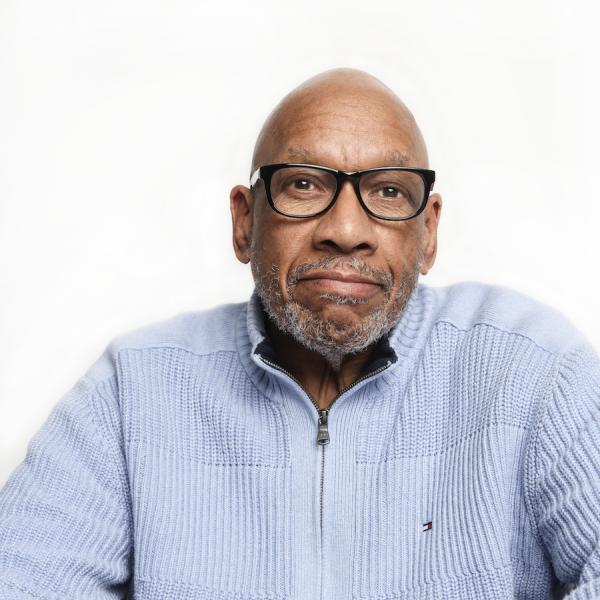Pete Seeger

Photo courtesy of the Woody Guthrie Archives
Pete Seeger—Podcast Transcript
Jo Reed: That is Pete Seeger singing "This Land is your Land" which was written by his friend, Woody Guthrie.
Welcome to arts works, the program that goes behind the scenes with some of the nation’s great artists to explore how art works. I’m your host Josephine Reed.
2012 marks the 100th anniversary of the birth of singer, songwriter, and activist Woody Guthrie. Guthrie traveled throughout the country embracing traditional folk music while writing and performing his own songs—more than 3,000 at last count. While his music covered every conceivable subject, he is best-known for shining a spotlight on the troubles and triumphs of the common man. Folk icon Pete Seeger knew Woody Guthrie as well as anyone-- they were two of the founders of the folk group the Almanac singers ...they traveled together, played together, performed together. In the first of a two-part conversation Pete Seeger remembers friend, Woody Guthrie.
Pete Seeger: I met Woody Guthrie. This is in 1940. And that's when I really learnt how to pick a banjo; because uh.. he taught me how to hitchhike and how to raid- ride freight trains. And I went up and down the Appalachians. And every time I found a banjo picker, I watched him closely. (music up)
Woody had gone from Oklahoma to California. And an unusual man had a tiny little radio station on the outskirts of Los Angeles, and he played- paid Woody one dollar a day to sing some songs for 15 minutes on his radio program. <Laughs> And he advertised a little songbook. It was called On a Slow Train Through California. And he sold it for 25 cents. Right after he was on the air, there was a newspaper reporter from the Communist newspaper, The People's World, Ed Robbin. And uh.. one uh..- one day Woody says, "Ed, do you ever listen to my program?" And Ed says, "Well I'm sorry Woody, I have to apologize, I usually come just in time for my own program and I don't listen much to country music." And Woody said, "Well you come early next- tomorrow 'cause I think you'd be interested in what I'm singing." And the next day Woody sang: "Mr. Tom Mooney is free! Mr. Tom Mooney is free! Done got a pardon from that old jailhouse warden, Governor Culbert L. Olsen's decree." And afterwards Ed said, "Woody, that's a great song. And you know, now that Tom Mooney is outta jail, we're having a big celebration tonight. There'll be a thousand people there; and uh.. they'd love to hear that song. Uh.. of course it's a little leftwing." And Woody says, "Leftwing, chicken wing, don't matter to me none. I've been in the red all my life." And so Woody went. But there was speech after speech after speech after speech, and Woody fell asleep. Suddenly Ed walks over and shakes him. "Woody, you're on. " Woody shakes the sleep out of his eyes and sings this song; got a standing ovation and uh.. had to sing the song twice. In the audience was a Hollywood actor, Will Geer. And he goes up, "Woody," he says, "I'm going up tomorrow to uh.. put on a little show for the lettuce workers up in Bakersfield. Uh.. they're thinking of going out on strike. Uh.. would you come along? They're all Okies like you. They'd love your songs."
(music up)
So Woody and Will Geer became a team; and pretty soon they were singing for leftwing fundraising things in uh.. Hollywood. Will wrote me a letter. I'd met him a year before when I sung in New York for a little leftwing theater group: Stage for Action I think was the name of it. And uh.. Will wrote me a postcard: "I met a wonderful songwriter out here. I hope uh.. I can persuade him to come East and you'll meet him." I then got a job working for Alan Lomax in Washington. But Will wrote Woody: "If you can get here by March uh.. I've got a little theater just off Broadway and I got permission from the producer to use the- the theater for a midnight benefit concert for the California Agricultural Workers." Burl Ives was there; Josh White, the Golden Gate Quartet and Leadbelly. Leadbelly did a buck and wing dance on the porch of one of the-- the play was Tobacco Road . And Will was the star of the show. Well, Woody was the star of the evening.
(music up)
He was very laconic, like Will Rogers. He really admired Will Rogers. He named his son Will Rogers Guthrie. He himself was named after President Woodrow Wilson: Woodrow Wilson Guthrie. Because his father was a Democrat <chuckles> when he was born in 1912. Anyway Woody would tell stories and sing a song and tell another story and then sing a song. He said, "Oklahoma's a very rich state you know; we got uh.. oil in Oklahoma. If you want some oil go down a hole in the ground and get you some oil. We got coal in Oklahoma. If you want some coal, go down a hole in the ground, get you some coal. Uh.. we got lead. If you want some lead, go down a hole in the ground, get you some lead. If you want food or clothes or groceries, just go in the hole and stay there." And then he'd sing a song <chuckles>. I tried to learn from him but he was the world's greatest.
I did learn the idea that you could mix up storytelling and- and singing; and get a crowd singing along with you. Alan Lomax went up to Woody that evening and he said, "Woody, we have a recording studio in Washington. You gotta come down. I want to record every song you've written, every song you sing." Uh.. and I think they recorded for two days solidly. The recording engineer was a wonderful man. Later on he was president of MIT. I've forgotten his name because I forget everything these days. My own memory is- is going. But I could accompany Woody in any one of his songs. I had a good ear. I had steadfastly refused to learn to read music but I had an ear and I could tell what chord it was; whether it was a dominant chord or a double dominant or a triple dominant <laughs>.
Woody got a job on the radio for the Model Tobacco Company, and they were gonna pay-- they did pay him two-hundred dollars a week; which is like two-thousand dollars a week now. But they wanted him to sing songs he thought were stupid, and they didn't want him to sing the songs that he wanted to sing. So but he only kept the job about three weeks. And his wife had come up from Texas with their three kids, and they'd rented an apartment, and now he was out of a job. She said, "Woody, you bought a car and now we don't have money to pay for it." She went back to Texas. Woody said, "Pete, we can go West on credit." And without paying for the car. He took me along with him.
(music up)
I remember we picked up hitchhikers everywhere we went. One had crutches, and he said, "If you need money for gas boys, let me off in front of a Woolworth's and I'll put my tin can out in front there and in a couple of hours I'll enough gas to get us to Oklahoma." <Laughs> He was right. When we were in Memphis and we were hungry-- he says, "Here's some money, go out get you some supper." But he says to me, "Go to a drugstore and get two ounces of paregoric. And you'll have to sign your name. Don't give 'em a correct name. And if they ask what's it for, say the baby has a stomachache." And so I did what I was told. I ordered two ounces of paregoric, and signed a false name and address. And he said, "What are you using this for?" I said, "Oh the baby has a stomachache." "Oh" he says, "this'll put the baby to sleep for two weeks." But he sold it to me. I brought it back to the man .. He drink- droke- drug-- he drank the two ounces of paragraph in one gulp. I said, "What does it do for you?" He says, "Oh it kind of puts my mind at rest, and we're just moving along through the world and my mind's at ease." I didn't know at that time it has opium in it.
(music up)
We got out to Oklahoma and uh.. we found out that a friend was trying to organize an oil workers' union. And he said , "Woody, could you and Pete sing some songs? There's six men with overcoats on coming and standing against the back wall, and they may be intending to break up this meeting." There were only about 60 people there. But there were women and children; uh..nobody had money for babysitters. And we got the crowd singing. And afterwards we found out they had intended to break it. They had baseball bats under their overcoats. But they said, "Oh this is different than we were told it was; we had intended to break you up. Of course you should've had the American flag here." And the leader of the oil workers said, "You're right. Next time we'll have the American flag here." <Laughs> And that's when the wife of the organizer said, "Woody, couldn't you make up a song for the union women? If it hadn't been for them being here and singing, they might've broken up this meeting. And most of the union songs are all 'brothers this' and 'men that'."
(music up)
The next morning in the union office Woody had his guitar and he'd try out a verse, and then he'd sit down and type out another verse, and then he'd stand up. And a year later I'm recording an album of union songs. Woody was on the West Coast then making up songs about the Columbia River dams. But one of the songs we'd intended to record didn't turn out well. And they said, "Pete, do you know another union song?" I said, "Well Woody wrote a wonderful chorus. I'm not sure if I can remember any of the verses." I did remember two of the verses. And Millard Lampell, one of the Almanac Singers making this record, said, "Give me 20 minutes." And he went into another room and came back with a third verse; which was not a good verse but we sang it. "You gals who want to be freed, take a little tip from me, get to a man who's a union man and join the Ladies Auxiliary. Married life ain't hard if you got a union card, and a union man has a happy life if he's got a union wife." Well, it was not a very good verse; and since then at least six other verses have been written. And I'll sing one of them. "You women who wanna be free, take a little tip from me, break out of that mould we all be sold. You got a fighting history. The fight for women's rights with workers must unite; like Mother Jones, move them bones to the front of every fight." <Sings> that chorus-- "Oh you can't scare me, I'm sticking to the union, I'm sticking to the union, I'm sticking to the union." We sang it in the Labor Day parade in Los Angeles, and they were all singing it with me. The melody, the tune, is an old German folk song; and I think it was Robert Schumann. Dah-dah dee-dee, dee-dee dee-dee-dee-dee. And in 1907 somebody made a slightly risqué version called "Little Redwing." <Sings> "Oh the moon shines bright on pretty redwing. As she lay sleeping, there came a-creeping, a cowboy with his eyes a-gleaming into the door of redwing's teepee." <Laughs>
Woody Guthrie's records are now heard around the world, even though he didn't record for any big. His children's song, a song he wrote for his four-year-old daughter: Why, oh why, oh why, oh why? Why, oh why, oh why? Because, because, because, because. Goodbye, goodbye, goodbye. That is his most popular song in Europe, in Asia and Africa and Latin America. Why don't you- uh.. why can't a dish break a hammer? Why, oh why, oh why? Because a hammer's got a pretty hard head. Goodbye, goodbye, goodbye. "Everybody sing it now." Why, oh why, oh why, oh why? Why, oh why, oh why? Because, because, because, because. Goodbye, goodbye, goodbye.
(music up)
Woody was the most songwriter genius I ever knew. Once, right after World War Two, he and I and Lee Hayes were in a little old propeller plane, flying to Pittsburgh to sing for the strikers at Westinghouse Corporation. And Lee fell asleep; I read a magazine; but Woody was scribbling on a piece of paper. I found out it was the paper they hand to people who have to throw up-- <laughs>-- that was that the only paper he found. And then when we arrived in Pittsburgh he just got up and left the paper in the seat. I went and got it. He'd written verses about the towns we flew over. He says, "I wonder if oh people in that town, what they think when they see this metal bird flying over their head?" And then he looks at the pretty stewardess and said, "I wonder what she's gonna be doing tonight." <Chuckles> And makes up verses. I gave the piece of paper to Woody and I said, "Woody, how people like me envy you, your ability to just make up verses wherever you are, whenever you are."
(music up)
That was two folk legends: Pete Seeger reminiscing about his friend, Woody Guthrie as we celebrate the centenary of his birth. Next week, Pete Seeger returns to talk about writing music and the power of song.
You’ve been listening to artworks produced at the National Endowment for the Arts. Adam Kampe is the musical supervisor.
Excerpts from "Why Oh Why", "This Land is Your Land", "Farm Labor Train", "Ramblin Round," "Hobo Lullaby", "Ladies Auxillary", and "So Long, It's Been Good to Know You", written and performed by Woody Guthrie from Woody at 100, The Woody Guthrie Centennial Collection courtesy of Smithsonian Folkways Recordings and theWoody Guthrie Foundation.
Excerpt from "This Land is Your Land", written by Woody Guthrie and performed by Pete Seeger. Used courtesy of Sony Music Entertainment.
"Farm Labor Train" used courtesy of Bug Music
All other songs used by permission of Ludlow Music Company c/o The Richmond Organization.
The Art Works podcast is posted every Thursday at www.arts.gov. And now you subscribe to Art Works at iTunes U—just click on the iTunes link on our podcast page.
To find out how art works in communities across the country, keep checking the Art Works blog, or follow us @NEAARTS on Twitter. For the National Endowment for the Arts, I'm Josephine Reed. Thanks for listening.
Pete Seeger remembers his friend, Woody Guthrie. [21:13]




